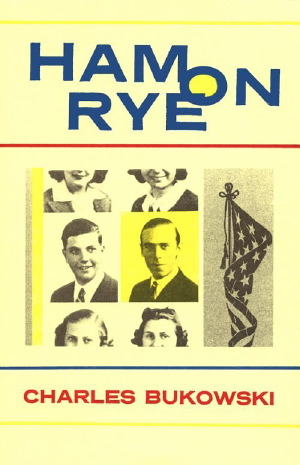Book Review: Ham on Rye
March 27, 2013
“Fight Club,” which I reviewed last issue, was a highly engrossing novel with a most fitting ending of unparalleled creepiness. I also ended up watching the film adaptation starring Brad Pitt, Edward Norton, and Helena Bonham Carter afterwards. The thing about the movie was that virtually every line was taken straight out of the book, so Palahniuk had basically written the script. That being said, the adaptation was obviously extremely loyal to the original work. The ending, however, had been altered perhaps because the ending that Palahniuk had written was a little too morbid and would only have appealed to a very select audience. I personally think that the movie ending was too happily ever after in comparison to the rest of the plot and that Palahniuk’s version was the more fitting.
This month, I started reading Charles Bukowski’s “Ham on Rye,” an autobiography told through the alter ego of Henry Chinaski. I had mostly been interested in Bukowski’s poetry, especially his collection titled “Love is a Dog From Hell,” until now, but I decided to give his books a chance too. My curiosity was well rewarded. Both “Love is a Dog From Hell” and “Ham on Rye” are rife with instances of crude humor and take painfully realistic points of view on life. Bukowski wastes no time in getting to the heart of the matter every time, and he tells his stories in a very no-nonsense style.
“Ham on Rye” is basically Bukowski using Chinaski as a way to narrate his own coming of age, especially to highlight the difficulties of bullying, family problems, and the like that accompanied that stage of his life. It is chronologically the first of Bukowski’s autobiographical series. Since Bukowski grew up in the 1930’s and 40’s, Chinaski’s childhood also takes place during the Great Depression. However, “Ham on Rye” isn’t necessarily centered on the abysmal state of the economy, as so many books set in that time period often are. It is an extremely honest book about being the outsider as a child but still manages to be funny in all the darkest ways and like “Fight Club,” isn’t for a delicate audience.









